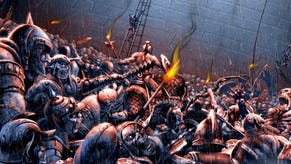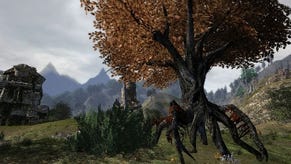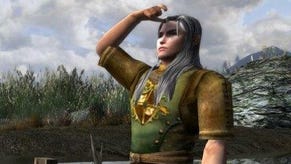Forging the Rings
One Producer to Rule them All.
Only time will tell whether Jeff Steefel has the best job in the world - or the worst. It could go either way for the man who oversees the production of Lord of the Rings Online for Turbine. On one side of the argument, his job is to bring J.R.R. Tolkien's Middle-Earth to life in a more ambitious and far-reaching manner than anyone (even Peter Jackson) has attempted before. As a life-long fan of the Lord of the Rings literature, that's undoubtedly a dream come true for him.
On the other side, though, lies the simple fact that Lord of the Rings fans are not the most... Well, not the most placid bunch, shall we say. Nor, for that matter, are MMOG fans. Both groups are known to be notoriously fickle, unforgiving, difficult to please and just downright bloody minded. Jeff Steefel's job is to make a game that will be loved in both camps. If he succeeds, we hear there might be a few job openings in the Middle East for someone of his talents.
Despite the weight of expectation which rests on his shoulders, Jeff was in fine spirits when we met him in London recently - and with the launch of Lord of the Rings Online looming, there was plenty to talk about...

I'm the luckiest man in showbiz! I've been working in this industry for about 15 years; I came to work for Turbine pretty much specifically to work on this game. Before that I ran a studio for Sony Online, and I worked for a number of companies building, designing and producing games for quite some time.
I found myself attracted to this particular title at Turbine, since obviously like many people I've been reading the books since I was young - and I probably have an older copy than most people! That's what led me to it, and honestly, I can't think of anything I'd rather work on than this. This is the thrill of a lifetime.
Well, our CEO Jeff Anderson, about four or five years ago, went out to Vivendi - who at the time was looking for a developer. They were the publisher for Lord of the Rings at the time, and they looked at lots of different companies. We had finished making Asheron's Call and had a fair amount of experience in these types of games - particularly with the story background. They decided that Turbine was the right company to do this.
Over time, Vivendi was busy doing other things, and we worked out a situation where we could have the license directly from Tolkien Enterprises. That started around January of 2005, and the rest has been just a little bit of work to get us to this point.
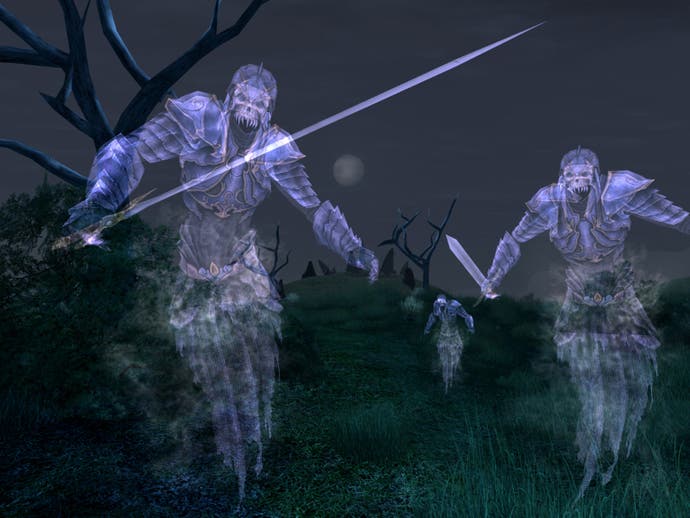
Our license is directly for the books - the Hobbit and the trilogy. The truth is that nobody really has the rights for the movies, because making an MMO out of the movies by themselves would be very difficult - almost prohibitive. The movie rights are basically for single-player games.
No - and in some respects that's better, because that would be a tempting trap for us, right? This forces us to really go back to the source material, understand it in great detail - really understand what kind of world we're building and devise our design from that.
Well, pluses and minuses in all things, right? It's definitely a double edged sword. I think the expectation is very high - on the other hand, judging by the response that we've had in beta so far, I think we've passed that threshold where people feel like we've treated this gem in the way that it should be treated. People are happy with what we've created.
But it's always a challenge, when people have pre-conceived notions of the way it looks, and a very high expectation of what the world should feel like. That's why we've spent so much time and energy both being clear that we understand what the world was intended to be, and at the same time creating the highest level of quality in terms of look and feel, and really feeling like a place you'll want to spend a lot of time in.
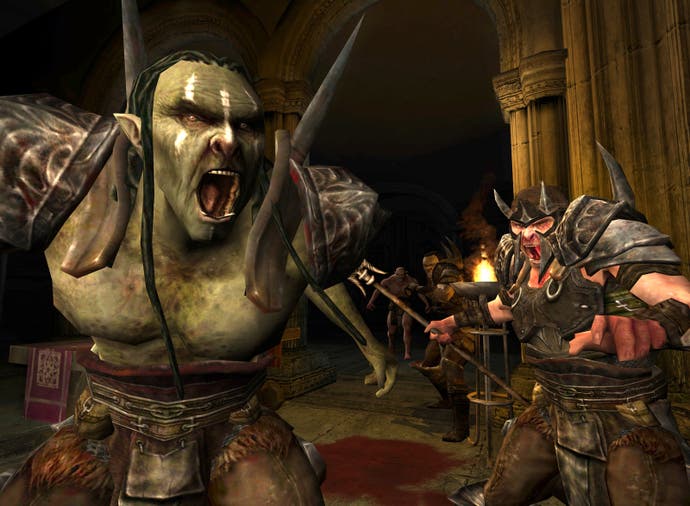
That's fair, and I think we're... Well, I won't quote you, because then you'll quote me quoting you! I think we're closer to the casual side.
One thing that we've tried very hard to do, which is not an easy task, is to recognise the fact that there are going to be a lot of fairly hardcore MMO players who will want to play this game, because it allows them to do all the things that they love to do, and more, but in Lord of the Rings, in Middle Earth. At the same time, as you say, it's going to reach out to a broader audience because of the IP - so in some respects we've tried to design a game that helps, within a certain narrow band, us to have our cake and eat it too.
Many of the game's systems provide for different levels of complexity, for example. The game is very accessible in the beginning, so for a casual, mass-market person, it's very easy to get into. There's no tremendous learning curve; if you've never played an RPG before, it's probably going to be difficult, but we don't imagine that we're going to get people who have never played games before.
But if you've never played an MMO before, there's a lot in the game that helps guide you through the early parts, so you get an understanding of how to play. Then you get to a certain point very quickly where you're playing the game, you're doing most of the meaningful things in the game, and enjoying it, consuming content... But you don't have to reach to the more complex levels of the game.
At the same time, if you're a hardcore player, you can breeze past some of the early introductory stuff very quickly, and there's levels upon levels upon levels of sophistication that you can get yourself involved with. So I can be a crafter, spend not that much time, and learn how to work through different professions just having fun in a casual way... Or I can make it my life's work to be a master crafter in Lord of the Rings, and create some really rare items and sell them at auction, mail them to people, do all kinds of stuff like that.
We're trying to stay away from ever actually enforcing grouping. We feel like... You know, I can't remember who it was, someone wrote an article quite a while back about being "alone together" in MMOs, and the truth is that that's something we've all learned. People like to group, but they also like doing things alone, with other people around, feeling like they're in a place that's populated.
The game is designed to allow solo play pretty much throughout. Now that said, there are going to be some high-level instances where you must have a group. There are very few of those - but there are a lot of high level instances or difficult challenges which you could solo, but you'd have to really over-level yourself, practice... But you can do it.
The goal, the curve that we've created for the game in the design is that in the beginning, you can solo anything. Over time, you get to a point where the majority of it is still solo-able, there are just a few things which require the considered effort of a group. The feel of the game should be that as an individual player, I can pretty much experience the game by myself if I want to.
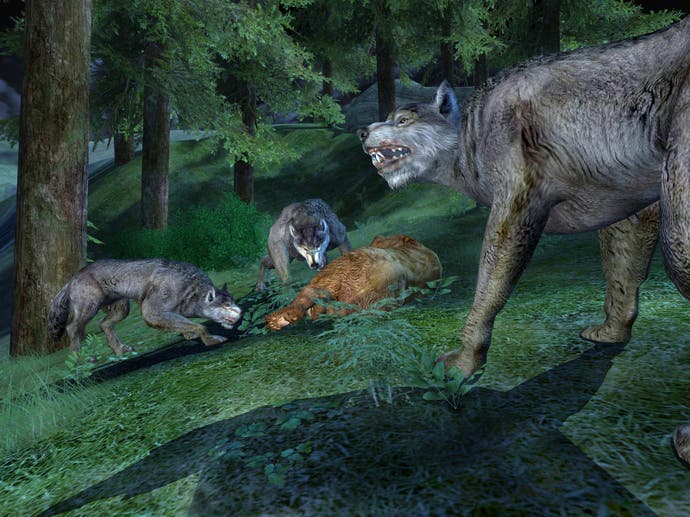
It scales really well. Some of that is that I'm the beneficiary of this being the fourth game that Turbine has built - so we've been working on this engine for quite some time. It scales pretty well, down from the craziest high-end machine that you can imagine - in which case we try to give you some extra things that you can take advantage of - down to a much lower end machine. The graphics there still look really really good, but the way in which the engine can manage what we're rendering, what we're not rendering, how we're managing things... It's very effective at doing that.
We've also spent a lot of time over the last six months specifically on this game, for the very reason you're describing, eking every bit of performance we can out of the game - to basically drive those requirements lower and lower and lower, because we recognise that that's important.





